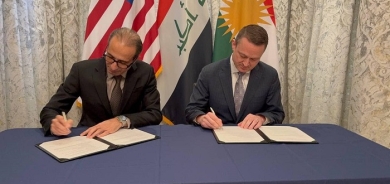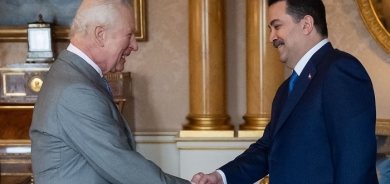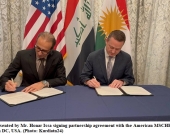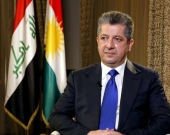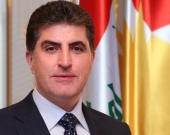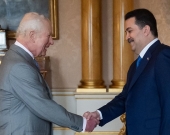Syrian Christians flee to Lebanon, become kidnapping targets

The Brigade 313-Special Missions, affiliated with the rebel Free Syrian Army, announced responsibility for the attack on its Facebook page. But another FSA brigade denounced the attack, and responsibility for the bombing has yet to be determined.
Syria's civil war has spilled over into Lebanon with greater intensity in the last few months. Hezbollah and its allies support the government of President Bashar al-Assad, while Sunni militias back the rebels. The war remains a political battle, but it has sharply increased religious and ethnic strife in both Syria and Lebanon.
While the war has increased animosity between Sunni and Shia, it has also devastated Syria's Christians, some of whom have now fled to Lebanon. Their story is rarely told.
Maryam, her husband and two children fled the fighting in Syria and arrived here in Lebanon with only one suitcase each. They left the war-torn city of Qusayr prior to its recapture by pro-government forces.
"Bullets were flying everywhere," Maryam told GlobalPost, asking that only her first name be used. "There were rockets. My children couldn't go to school."
The family suffered months of hardships, in part because they were Christians, according to Maryam. "The mosques announced they wanted to round up all the Christian men. The families became scared."
The family finally left after masked men came to their apartment intent on taking all the Christian men in the building. "We either had to run for our lives or join the fight," said Maryam, who is Roman Catholic.
The family fled to Zahle, a predominantly Christian city in the eastern mountains of Lebanon.
Their masked antagonists weren't the infamous thugs of Assad. Nor were they fighters from other countries intent on waging jihad.
They were local, anti-Assad rebels intent on purging Qusayr of pro-Assad Christians. The city had become a major battleground, with religion as a defining factor.
Maryam is among the thousands of Syrian Christians who have fled the fighting but received little international attention.
The Most Reverend Archbishop Issam Darwish, a Melkite Catholic whose archdiocese includes Zahle, said Syrians have lived in peace for generations. He blames the anti-Christian violence on extremist groups such as Al Nusra and other jihadists.
"They believe Syria is a Muslim country, and the Christians must leave," he said. "But most Syrians are not like that."
Christians in Syria trace their history back to the days of St. Paul. Damascus became a major center of Christianity during Roman times. Islam became the dominant religion under Arab and later Ottoman empires, but Christians generally lived peacefully with their Muslim neighbors.
When the French occupied Syria and Lebanon after World War I, they implemented a divide-and-conquer strategy that favored some Christian sects. Many Syrian Christians achieved higher incomes and educational levels than their Muslim counterparts, differences that persist today. Christians also participated in the anti-colonial struggle and helped found the nationalist Baath Party in the 1940s.
Today Christians make up about 10 percent of Syria's 22.5 million people, and include a variety of Orthodox and Catholic denominations.
In 1970 Hafez al-Assad, Bashar's father, came to power in a military coup. His family was Alawite, a mostly secular-minded minority that split off from Shia Islam centuries ago. The Assads established a brutal, but secular, dictatorship. Some Christians rose to positions of power in business, government and the military.
When the Syrian uprising broke out in March 2011, Christians remained neutral or sided with Assad. They saw that Muslim extremists - both Shia and Sunni - had driven Christians out of Iraq after the US invasion of 2003. They feared a similar crisis in Syria.
Even in the early months of the uprising, some local Sunnis were chanting the slogan, "Christians to Beirut, Alawites to the tabout [coffin].”
"We heard that slogan," said Joseph, Maryam's husband.
GlobalPost


